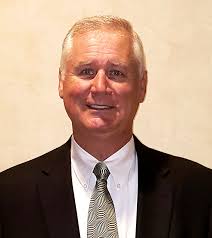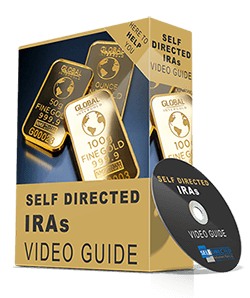Many companies use 401(k) plans as tools for recruiting and retaining talented employees. These plans also help employees to plan their retirement. A part of their pay-check, along with a matching fund (mostly) from the employer, is put away in a retirement account. The employee is responsible for managing the allocation of the funds into various investment vehicles.
If you want to manage your retirement funds with great authority and ease, you first need to get a grasp of the 401(k) plan basics. Learning the basic principles of 401(k) will help you to make better financial decisions. Here are a few strategies that can help you manage your 401(k) like a pro.
Contribute the maximum for the match
If your company is matching your contributions, don’t miss out on the match. Contribute as much as you can. Your company is giving you free money to participate in the retirement plan, and as a rule, you should never say no to free money.
You may want to consider contributing to an IRA once you reach the maximum contribution for the match. With an IRA, you have more investment choices and can easily diversify your savings.
Learn the basics of investing
The basic knowledge of investing can help you understand terms like an expense ratio, risk tolerance, and 12B-1 fees. Carefully read through your plan information. If you do not understand a few terms, look them up online.
Get help for managing your account
A report published by Financial Engines, Inc., in 2014, found that assets managed by professionals gave an average of 3.32% more in returns than accounts managed without professionals. Even if you have a little investment knowledge, it’s worth getting help from financial advisors. However, they come at a price. They usually charge a fee of nearly 3% of the account holder’s total account balance. Online financial advisors may charge a little less.
If you have some knowledge of investments, you can do-it-yourself too. There are a few 401(k) plans that offer free professional advice or may even provide you model portfolios that you can take inspiration from.
Another good option of managing your account would be using a combination of both a DIY approach and a professional manager. You will find financial advisors who are willing to work with you on this basis too.
Rebalance annually
Just like your life, your 401(k) also needs maintenance. And in the investment world, maintenance is called rebalancing. The value of your assets moves up or down, thus becoming a larger or smaller percentage of your overall investment portfolio.
You need to have a specific allocation of your assets. For example, if you are above age 40, you might have 80% in stocks and 20% in bonds. If this allocation goes out of balance due to market fluctuations, you may have to sell or buy assets.
You need to rebalance your portfolio to your suggested investment allocations. Once a year is a good period to perform this task. You can also consider rebalancing when you are preparing your taxes.
Consider the index fund
The thrill and excitement of stock picking, appeal to a lot of people. But it’s a gamble. A good idea would be to invest in an index fund. Research shows that index funds outperform actively managed funds in the long run.
The index fund follows the market index. The fund simply follows the S&P 500 and rises and falls with that index. There is no guesswork here. And the fees you pay for index funds are lower compared to the funds that try to pick the next high performing stock.
Go beyond 401(k) to have a good investment mix
Your investment portfolio should be a mix of several investments, and 401(k) should be one of your many retirement vehicles. A home, collectibles, a side business, and other retirement accounts like an IRA should be part of your investment portfolio.
When you leave your employer or switch jobs, consider rolling over your previous employer’s 401(k) into an IRA or your new employer’s plan. A rollover of your 401(k) into an IRA gives you a wide range of investment options. You can easily spread your assets and have a great portfolio mix and generate better returns.
Get professional help with investment allocations
Whether you are investment savvy or not, it’s worth taking advice from a professional on how to structure your asset allocation.
You don’t need to hire a financial advisor if you don’t want to pay the expert for the advice. You can turn to 401(k) plan websites or robo-advisors that offer suggestions based upon your age, gender, and risk tolerance ability. It’s a good way of getting asset allocation advice at no cost.
Another way of getting free advice is to get in touch with the advisor who works with your 401(k) plan. Finally, if these options do not appeal to you, get a financial planner on board at an hourly rate.
All of these approaches are low cost or free, but can have a significant impact on your final balance. So, you don’t have any reason not to do this.
Review your allocations every couple of years. Any change in your financial situation or family (death, marriage, child, and job) can have a significant impact on your ability to bear the risk.
Allocate your savings to target-date funds if you want to keep it simple
People who are too busy to participate more actively in managing their accounts allocate their savings to the target date fund (the date is closest to the year they turn age 65). Since there is no rebalancing or allocation review required, the target-date fund is the easiest way for people to invest. You can also consider investing 100% of your balance in an age-appropriate target-date fund.
If you want help in managing your 401(k), call Self-Directed Retirement Plans LLC
Need assistance organizing your finances?
FAQs
Can I Manage My Own 401(k)?
Yes, you have the right to select where to put your money in your company’s 401(k) plan. Usually, you are able to select from a wide range of options, including mutual funds, exchange-traded funds (ETFs), and maybe even company shares. However, it’s important to note that you can’t invest in securities that are not available through the plan. This means that you typically are unable to pick certain stocks or bonds.
Do I Need a Financial Advisor to Manage My 401(k) Plan?
If you already have a financial advisor who helps you with your personal finances, they can assist you on how to invest your 401(k) contributions. Additionally, some employer 401(k) plans also provide access to financial advisors who can assist participants with their investment plans. Whether you should consult a financial advisor depends on your understanding of finance, how confident you feel, and your willingness to incur any associated costs (as advisors often charge fees).
Got More Questions?

Rick Pendykoski is the owner of Self Directed Retirement Plans LLC, a retirement planning company based in Goodyear, AZ. He has over three decades of experience working with investments and retirement planning, and over the last ten years has turned his focus to self-directed ira accounts and alternative investments. If you need help and guidance with traditional or alternative investments, call him today (866) 639-0066.




